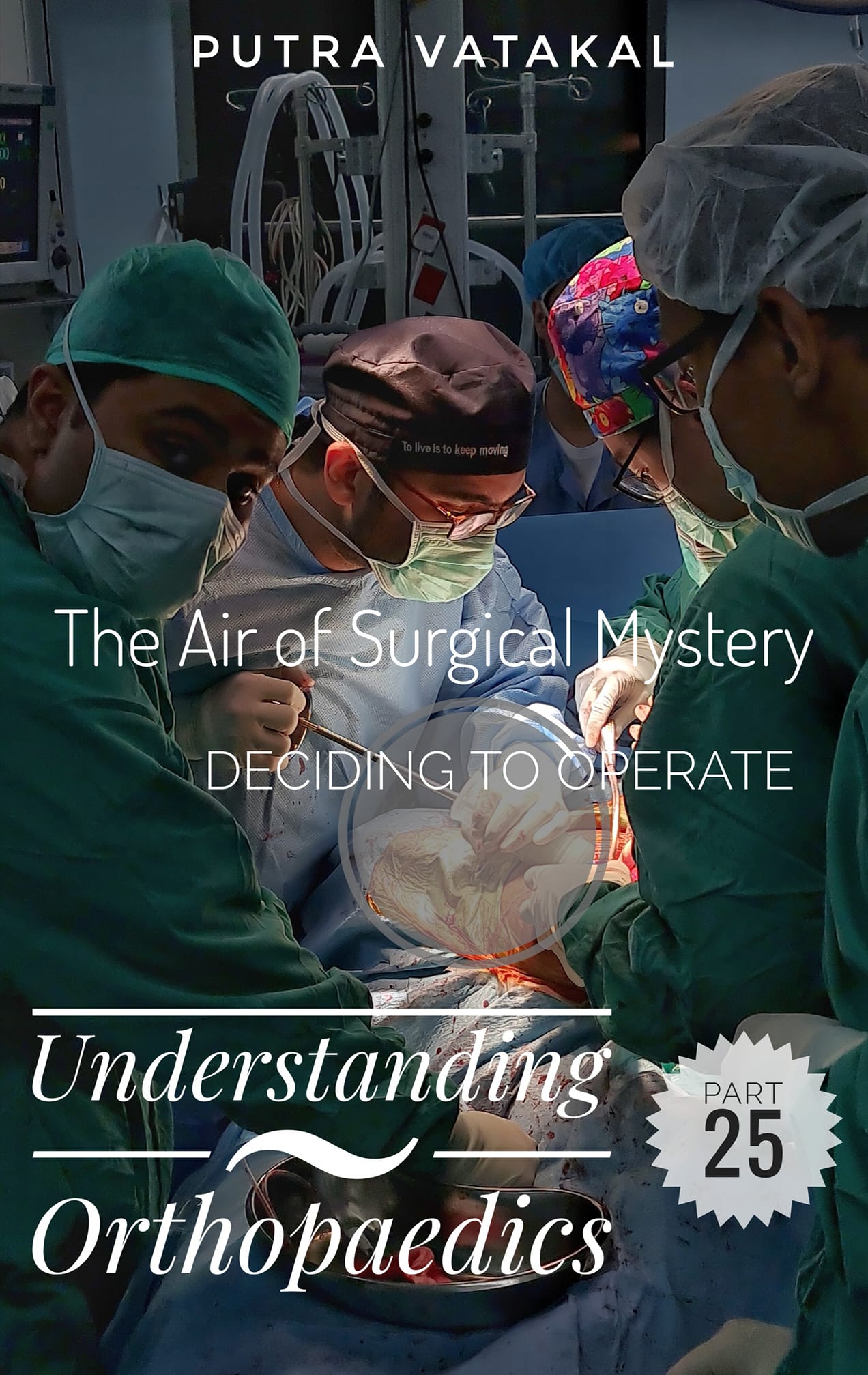Deciding to Operate
Little boy Putra lived to watch TV.
The 1980s: a time of unvetted video violence – with a mud splattered Sylvester Stallone raining bullets into straw-hatted Viet Kong and Arnold Schwarzenegger’s grim face torn away to reveal the polished steel terminator within.

But what captured my childish attention was the illusions of David Copperfield.
The world (or at least our family) held its breath as Mr Copperfield made the Statue of Liberty disappear, and then walked through the solid stone of China’s Great Wall.
David Copperfield’s brand of magic used rotating platforms and mechanical secrets that I will leave for you to discover for yourself.
But people have always been drawn to things mystical and magical. Even today, bomohs (traditional shamans) and mystic healers capture the hearts of many of the desperately ill.
Perhaps we too easily place our trust in those who profess power over things that we ourselves do not understand.I
t’s easy to smirk at those who seek healing in these places, but really, the patients we see in hospitals today can view modern medical care as equally mystical.
Like potions of love or rings of power, modern tablets and pills make equally wondrous claims to solve the problems we face.
Surgery – especially to the uninitiated, is shrouded in layers of mystery. Yes, we repair and reconstruct. Progress is made. Lives are changed – in most cases, for the better.
But what I try to remember to tell my patients everyday, is that what God has created, man (and woman, of course ![]() ) cannot hope to completely restore.
) cannot hope to completely restore.
So, when someone asks me, “Doc, should I have the operation?”
…sometimes the answer takes some thought
——————
Medically, if you are considering an operation for… let’s say, knee osteoarthritis… together we would need to determine if surgery would help:
1. To reduce your knee pain and improve your quality of life (No Pain)
2. To correct your bent/ crooked/ deformed knee and allow better walking (Good function)
If the answer to these two questions is yes, then we would proceed to the next items of discussion:
3. Have you been doing enough exercises/ had less invasive treatment , but your knee still really hurts?
4. Does your knee pain stop you from living the life you want? (e.g. driving, playing with your grandchildren)
5. Do you need regular painkillers , and does your pain disturb your sleep?
If you’re nodding to most of these… there’s a good chance surgery could improve your life quality, and putting it off may be unnecessarily making you suffer.
——————
Reconstructive joint surgery is very different from an operation to remove a cancerous tumour, or perhaps remove a badly infected body part.
For one, there is enough time to make good informed decisions. Patients can (and should) be deeply involved in their treatment decisions.
Besides, to be a success, even a perfectly performed operation depends very much on post-operation rehabilitation and exercises.
——————
Deciding to have an operation is a HUGE decision, and you absolutely MUST discuss your feelings, fears and expectations with your family/friends. (and of course, your friendly orthopaedic surgeon)
Ask questions.
Get the information you need.
Do NOT rush. Have a plan for your recovery.
Your newfound knowledge probably won’t help you walk through the Great Wall of China, but it can be the light that clears the air of surgical mystery.
And it just might light up your day.
Originally written on 17 October 2020 in Sungai Buloh Hospital, Selangor
Image credits: Nur Shahira